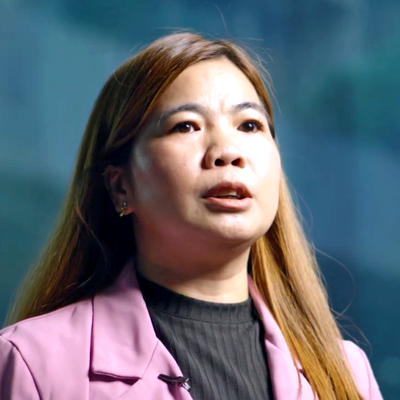
OVERVIEW
About This Programme

The Master of Science in Information Security and Digital Forensics equips students with advanced knowledge and practical skills to address the growing challenges in securing information systems and investigating digital evidence. Students will gain expertise in security management, computer security, digital forensics, and IT law. The programme offers a comprehensive understanding of the tools, techniques, and legal frameworks essential for cybersecurity professionals and forensic investigators.
Pursue the MSc in Information Security and Digital Forensics at LSBF Singapore today and gain advanced expertise in IT security, cyber security, and digital forensics. Designed for professionals seeking a master’s in information security or cyber forensics, with part-time study options available.
Through a combination of theoretical learning and hands-on practice, students will develop critical thinking and technical abilities to identify vulnerabilities, manage risks, and ensure compliance with legal and ethical standards. Upon completion, the MSc degree will be awarded by the University of East London.
Taught by Experienced Faculty & Consecutive Award-Winning Instructor of the Year, EC-Council, USA
12 month | fast track degree
LSBF is a Palo Alto Networks’ Authorized Cybersecurity Academy
Experience Amazon Web Service Cloud Technology
MODULES
Designed to explore beyond subject knowledge
The programme covers critical areas in information security and digital forensics. Security Management focuses on risk and systems management, providing practical experience in auditing and compliance. Computer Security explores tools and techniques to protect networks and systems against cyber threats. IT and Internet Law examines legal challenges and frameworks governing communication networks.
Graduates will develop the knowledge and skills to manage information security, address digital threats, and conduct forensic investigations, preparing them for advanced roles in cybersecurity and IT management.
Security Management
This module provides a core theoretical foundation for securing information systems, extending students’ knowledge of systems and risk management. It identifies challenges in security management and enhances the ability to manage vulnerabilities while integrating security with IT management. Students gain practical experience in auditing information systems using industry-specific standards.
Computer Security
This module provides an understanding of tools and techniques to protect computers, networks, and internet sites from unauthorised intrusion. It includes the study of potential security risks and the application of defensive mechanisms and tools to counteract cybercrime.
IT & Internet Law
This module develops an understanding of legal issues arising from the increased use of communication networks, focusing on the differences and contradictions between national, supra-national, and global legislative codes.
Mental Wealth – Professional Life (Dissertation)
This module involves conducting a Master’s level practical project within the scope of the MSc programme, developing skills necessary for senior computing professionals. Students will address ethical, legal, social, and professional issues while conducting research, analysis, design, implementation, quality assurance, evaluation, and project management. The module also emphasizes reflective skills, self-awareness, and strategies for personal and professional growth.
Full programme structure and learning outcomes
Get details and learn about the advantages of learning with LSBF.
what to expect
Advance Your Career in IT and Cybersecurity
Programme Aims
- Equip students with hands-on practical skills in Cybersecurity Infrastructure Configuration using Palo Alto Networks Next-Generation Firewalls.
- Develop knowledge of the theory and extended configuration features of firewalls to enhance technical expertise.
- Foster a comprehensive understanding of cybersecurity theories and concepts, enabling students to communicate effectively with peers and professionals.
- Prepare students with versatile skills applicable to diverse situations within the cybersecurity domain.
- Provide students with the necessary preparation for careers in cybersecurity industries or further academic pursuits.
Learning Outcomes
Knowledge and Understanding
- Demonstrate a comprehensive and critical understanding of large-scale software development concepts and activities.
- Exhibit expertise in artificial intelligence, computer vision, and data analytics, with applications in business and research.
- Apply a critical understanding of complex computing applications and advanced topics, culminating in a dissertation that explores resolutions.
Thinking Skills
- Integrate and apply knowledge from studied modules to demonstrate a deep understanding of principles and practices.
- Contribute to the development of related disciplines by offering innovative research solutions.
Subject-Based Practical Skills
- Critically evaluate architectures of computer systems, mobile and wireless networks, identifying and addressing security flaws.
- Develop expertise in service-oriented computing and manage security in business information systems.
Skills for Life and Work (General Skills/Transferable Skills)
- Systematically analyse problems and implement effective solutions, both independently and collaboratively.
- Demonstrate an awareness of international, national, and corporate strategic models for technology development and management.
Skills you will acquire

$92,000+
median Singapore salary for Accounting
483,000+
Singapore job openings in Accounting
75%
of graduates report positive career outcome
programme structure
Assessment, Graduation and Award
Modules are allocated a mark out of 100%. The pass mark for each module is based on an aggregate mark of 50%. The aggregate mark comprises marks from components/modules whose threshold is 40%. Assessment may incorporate one, two, or three components/modules.
The module specifications specify the mode of assessment for each module.
Assessment methods include formal examinations, work, project work, and group exercises.
Learners/Students with disabilities and/or particular learning needs should discuss assessments with the Module Leader to ensure they are able to fully engage with all assessments within the module.
Attendance requirement
International Students: 90%
Local, PR, non-student pass: 75%
Teacher Student Ratio
1:25
STUDENT SUPPORT SERVICES
Why choose LSBF for your education
Study Materials
Students will receive study materials after they have made full payment for their programme. Replacement of study materials is subject to additional charge.
Student Portal
Students have access to the Student Portal. It is a useful site where the course information and learning materials are available for students’ easy reference.
Accessible Faculty
Students may contact their lecturers directly via email outside the lecture hours for any academic related queries.
Recorded Lectures
We will show compassion and care to all stakeholders as we believe the journey is as important as the outcome.
ELIGIBILITY
Who can apply
Minimum Academic Entry Requirement
Learners/Students who have successfully completed either of the following:
- Bachelor’s degree in Science or Engineering subjects from a recognised university with a minimum of 2:2 classifications.
- Learners/Students who have obtained equivalent qualifications in relevant fields (usually professional qualification), will be assessed case-by-case and subjected to university approval.
Minimum English Language Entry Requirement
- Applicants who have not studied prior qualifications in English require IELTS 6.0 or equivalent in an accepted English language test.
Minimum Age
21 years or above
TUITION FEES (Price inclusive of GST)
$ 18,203.00
(local students)
$ 21,800.00
(international students)
FAQs
Is this programme eligible for SkillsFuture (SSG) or Post-Secondary Education Account (PSEA) funding?
SkillsFuture (SSG) and Post-Secondary Education Account (PSEA) funding are currently applicable only to selected programmes offered by public institutions such as NUS, NTU, and SMU. While this programme is not covered under those schemes, we’re pleased to offer exclusive rebates and promotional rates. To learn more about the available fee support and eligibility, please contact our Education Consultants at +65 6580 7700 or get in touch here.
What career opportunities are available after this degree?
You’ll be equipped for roles such as cybersecurity specialist, forensic analyst, IT auditor, or information security manager in both public and private sectors.
What can I study after this degree?
You may pursue certifications like CISSP, CEH, or CISA to complement your degree and advance professionally.
What if I want to branch out beyond security?
That’s okay. Your training in systems thinking and digital risk management supports roles in compliance, IT governance, and cyber policy.
How do I get started?
Reach out to our expert education consultants at +65 6580 7700 or visit us at 80 Robinson Road, #01-00, Singapore 068898. We’re here to help you plan your next step.



























